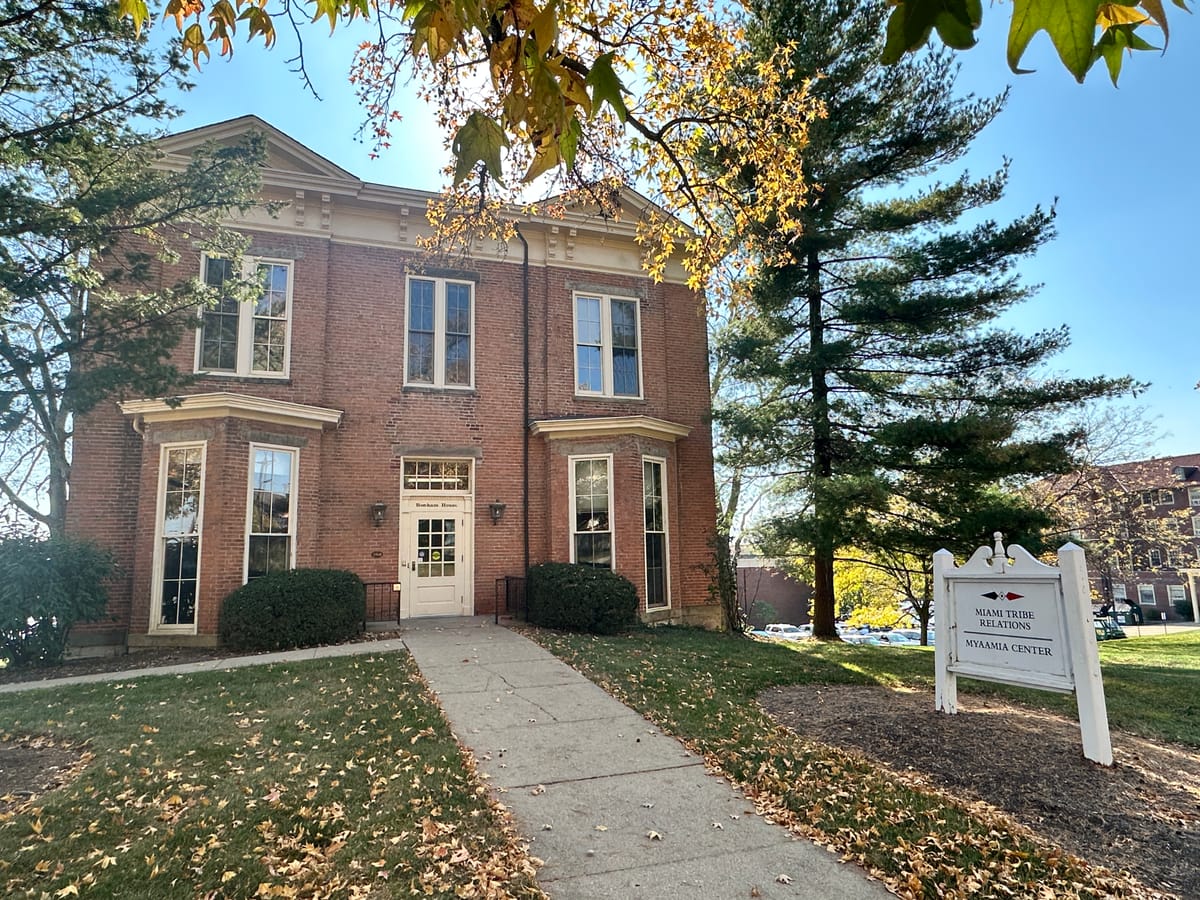November is Native American Heritage Month: Oxford and Miami’s ties to Native American culture
November is Native American Heritage month, and Oxford residents don't have to go far to engage with local Native American history.

November marks Native American Heritage Month, a month to recognize the contributions and history of Native Americans across the United States.
The observance began in 1990 when George H. W. Bush approved a joint resolution designating November as National American Indian Heritage Month. In the years following, it has been known under different names. Before the national designation, several states had days recognizing Native Americans, beginning with New York's American Indian Day in 1916.
Ohio and nearby states lack present-day reservations. Oxford is unique in that it is home to the Myaamia Center on Miami University’s campus. The center’s mission is to study and revitalize the culture of the Miami Tribe of Oklahoma, who originally inhabited parts of present-day Indiana, Ohio, Wisconsin, Illinois and Michigan before a series of treaties forcefully relocated them to Kansas and then later to Oklahoma, where tribal headquarters reside today.
Cameron Shriver, Myaamia research associate and visiting assistant professor of history, said the Myaamia Center's presence is significant.
“If you look at us on a map, we’re very insulated from Native Americans,” Shriver said. “That means a lot of people, let’s say my students in Ohio or people in Oxford, might not otherwise know that Native Americans still exist, and that’s a powerful narrative that they used to exist but don’t exist anymore.”
The university’s relationship with the Miami Tribe began in 1972 when Chief Forest Olds made an unexpected visit, establishing the first connection. Efforts to enroll Native American students through scholarships began in the years following with no applicants. However, in 1990, the university created a tuition waiver specifically for Myaamia students, spurring the creation of the current Myaamia Heritage Award Program.
Founded as the Myaamia Project in 2001, the Myaamia Center, directed by the Miami Tribe, focuses on efforts to revitalize the tribe’s language and culture while also exposing undergraduate and graduate students to the revitalization efforts.
George Ironstrack, assistant director and head of the education office, believes the university's relationship with the Myaamia Center has been mutually beneficial.
“Both our tribal leaders and university leadership believe that it’s benefiting them more than the other, which is a good place to be because it’s rare to be in a relationship where both sides feel they are getting more than the other side in a very good way,” Ironstrack said.
While the Myaamia Center is not hosting specific events for Native American Heritage Month, it will host a few events in November, including a Myaamia lunch in Western Dining Commons on Nov. 13 and a storytelling event on Nov. 14 in King Library from 4-5 p.m. Additionally, Nov. 11-16 marks Celebrating Miami Week, an annual collaboration with the Athletics Department that welcomes tribal leaders to several themed athletic events.
Ironstrack said the center's focus is inherently inward-looking and prioritizes researching its heritage and culture over public outreach events.
“That kind of work would consume us, and then we would have no or very little time left for our actual mission, which is working for our community,” Ironstrack said.
Although Shriver does not have Myaamia heritage, he said he hopes his research can help impact those who do and want to learn more about their history.
“History can help people think about themselves in the present, that includes all of us, not just native people or Myaamia people,” Shriver said. “Like, ‘How did we get here?’ ‘Why do I live where I live?’ ‘What were the experiences of the generations before me?’ It puts us into a kind of longer context, so that’s useful for anyone’s identity.”
Shriver recently authored a book about the relationship between the university and the Miami Tribe and is currently working on editing and publishing it.
The Myaamia Center has also released the first part of a docuseries, Neepwaantiinki: Learning From Each Other. The first episode, “Tending the Fire,” is available on the Miami Tribe Relations’ website.
Ironstrack, who has Myaamia heritage, said he feels a deep personal connection to his work at the center revitalizing the language his ancestors spoke and working on behalf of his community.
“I never come into work without a notion of like ‘Why am I doing this?’” Ironstrack said. “I always know why I’m doing it.”



